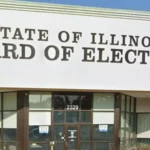
Today the Supreme Court released its opinion in Pugin v. Garland. This immigration case held that noncitizens can be deportable when they commit a felony relating to the obstruction of justice, even if the obstructive activity did not occur in direct relation to a pending criminal case.
In certain limited, criminal cases, the Court’s holding today will enable the government to pursue more deportations. In Pugin, those criminal cases related to witness tampering and accessory to a felony after the fact. Pugin technically combines two cases from the lower courts, which diverged on the question of whether a criminal investigation must be pending or in process for a court to hold that certain offenses constitutes an offense “relating to obstruction of justice.”
The petitioners argued that in order for a noncitizen to commit the aggravated felony of “obstruction of justice,” and thus be removable under 8 U. S. C. §1227(a)(2)(A)(iii), their obstruction offense must relate to a pending criminal proceeding. However, as the respondents “persuasively [argued], one can obstruct the wheels of justice even before the wheels have begun to move; indeed, obstruction of justice is often “most effective” when it prevents “an investigation or proceeding from commencing in the first place.”[1]
In addition to representing a narrow victory for law and order in immigration, Pugin also bears the textualist banner well. Endorsing the respondents view that obstruction can occur without an extant or pending case, Kavanaugh’s opinion in Pugin points out that the terms of the statute already embody “common sense.” According to Kavanaugh, there is no need to read an overly expansive or confusingly narrow meaning into the statutory definition of offenses “relating to” the obstruction of justice. Under his application of the statute, obstruction offenses are looped into the immigration state regardless of whether formal criminal proceedings are underway. And the perpetrators of the obstruction offenses will be made eligible for deportation.
Observers wondered how the Court would achieve today’s majority. Oral arguments involved prodding questions from Justices down the aisle from Thomas to Sotomayor. Ultimately, as is often the case on the Roberts Court, the commonsense demands of textualism prevailed.
Regarding today’s case, Landmark is pleased that the government will remain empowered to deport noncitizens who commit the aggravated felony of obstructing our justice system.
Read the full opinion here.
SUPPORT LANDMARK LEGAL FOUNDATION
We are truly facing existential threats to our individual rights and liberties, the Constitution, and our national character. If unchallenged, this assault on our very way of life will ruin our great nation. With your financial and moral support, Landmark is not going to let that happen without a fight. Will you join us?





